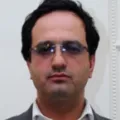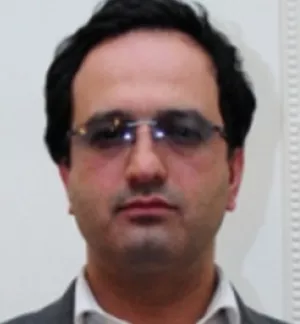Stephen M. Walt is the Robert and Renée Belfer Professor of International Affairs at the Kennedy School of Government, Harvard University. Professor Walt is the author of The Origins of Alliances (1987), and Revolution and War (1996). His recent publications include “An Unnecessary War,” Foreign Policy, (Winter 2002–03), “American Hegemony: Its Prospects and Pitfalls,” Naval War College Review, (Spring 2002); “Beyond bin Laden: Reshaping U.S. Foreign Policy” (International Security, Winter 2001/02); Taming American Power: The Global Response to U.S. Primacy (W.W. Norton, 2005). He co-authored The Israel Lobby and U.S. Foreign Policy (2007) with John Mearsheimer.
Kayhan Barzegar is a Research Fellow with the Belfer Center’s International Security Program and Project on Managing the Atom at the Kennedy School of Government, Harvard University. He is also an Assistant Professor of International Relations at Science and Research Campus, Azad University in Tehran. Mahas Rouhi a Research Intern at the Belfer Center for Science and International Affairs, Harvard University and a Ph.D student, acted as an assistant interviewer.
-------------------------------------------------------------------------------------------------
Kayhan Barzegar: In the context of “balance of power” theory, how do you picture the Persian Gulf of post-invasion Iraq?
Stephen Walt: My views would be relatively similar to everybody else’s: there was a condition of rough balance in the Persian Gulf region prior to the American invasion. Iraq was weaker than it had been in the past—it had been weakened by the first Gulf war and by a decade or more of sanctions—but it was still something of a counter-weight to Iran in the Persian Gulf region. You could argue that Iraq’s condition in 2001–2002 was almost ideal from an American perspective. It couldn’t threaten its neighbours any longer but it was not so weak that other regional powers could take advantage of it either. By invading, the United States dismantled virtually all of Iraq’s military capabilities, but we were unable to recreate them quickly. The result has been to tilt the regional balance heavily in Iran’s favour.
Kayhan Barzegar: So you mean that the new situation has totally changed the status quo and traditional balance of power in favour of Iran? How do regional or trans-regional states react to balance of power when their capabilities change?
Stephen Walt: I think people in the United States often exaggerate the danger somewhat. The fact that Iraq is gone as a counter-weight doesn’t mean that Iran can now dictate policy throughout the region. Iran is not powerful enough to do that. But its influence has undoubtedly grown, partly because it has considerable influence with the new Iraqi government and partly because Iraq’s former military capability is not there as a possible counter-weight. Many people in the West and in parts of the Arab world worry about Iran’s intentions, not because they are certain Iran wants to change the status quo but because they can’t be sure that it doesn’t want to either. You could say the same thing about Israel—they would like to alter the regional status quo in a number of ways—and the same is true of the Kurds in northern Iraq, the Turks vis-à-vis the Kurds, etc. Whenever the balance of power changes, lots of actors look for ways to protect their interests and if possible to take advantage of the new situation.
Another point that is not well understood in the United States is that beginning in the early 90’s there was a concerted U.S. effort to try to marginalize Iran as much as possible and limit its influence, as part of the strategy of “dual containment.” As one would expect, Iran sought to counter that effort in a number of different ways. In particular, Iran increased its support for radical movements that it really didn’t have that much to do with beforehand, such as Hamas and Islamic Jihad. In other words, what we were seeing was an Iranian effort to force the United States and other countries in the Persian Gulf region to give it a place at the table: they wanted us to acknowledge that Gulf security is a legitimate Iranian concern and therefore they have a right to be heard on this issue. This doesn’t mean Iran should get to dictate what arrangements are going to be, of course; it only means that trying to exclude it entirely isn’t going to work and will encourage Tehran to do whatever it can to cause trouble for the U.S. and its allies.
Kayhan Barzegar: So your basic argument is that the balance of power is the best political-security system in the region. Am I right?
Stephen Walt: From an American perspective, yes, but a balance of power is probably not what countries like Iran would want. If I were Iran’s leaders I wouldn’t want a balance of power in the region—I would want an imbalance of power in my favor. In other words, I’d like to be the strongest power in the region. This is the same to Saudi Arabia and Iraq—no matter what sort of government they had—they would prefer to be the strongest regional power if they thought this goal was achievable. But from a purely American perspective, our interests are best served by having a rough balance of power among the different countries in the Persian Gulf. We don’t want any single state to control that part of the world. That might not be a disaster for us, but it would create that possibility that one country could manipulate the oil supply in ways that we would find unpleasant. So for 50 years or more our general policy has been to try and encourage a regional balance of power.
Kayhan Barzegar: But this kind balance of power has simultaneously brought about a lot of tension and wars in the region, which has even damaged American interests. How? For instance, as a result of an increased arms race in the region in the 70s, Iran and Iraq competed to balance the power in the region. The ultimate result was a devastating eight-year war that Saddam imposed on Iran. Therefore, the aggregation of military hardware in the region was the direct result of balance of power. I would say that Saddam’s attack of Kuwait in 1990, and the subsequent U.S. attack on Iraq, and again in 2003 are all the result of balance of power that brought about an overall instability, distrust and rivalry between different regional actors. Would such a condition be in the interest of the United States in the long term given the U.S. declared policy of establishing security and stability in the region?
Stephen Walt: No, there are three options. One is that the United States tries to control the region itself which is what the U.S. has tried to do under the Bush administration. This means much more direct involvement, trying to promote “regional transformation”, and trying to dictate what kinds of governments these states ought to have. I think that is a foolish policy and we have seen the results in Iraq. So one option is we try to control it ourselves. That’s a bad idea. A second option is we just withdraw and let the Persian Gulf region evolve entirely on its own. Given our strategic interests in the region, I don’t think the United States can afford to ignore it completely. So the second option isn’t attractive either. So if you are not going to try and control it yourself and you are not going to withdraw and leave it alone entirely, then the only alternative is to try and encourage a balance of power there. This is not a perfect policy, perhaps, just the best alternative.
Kayhan Barzegar: But how would it be possible? How such this kind of balance is feasible, I mean while the U.S. is keeping balance, can it simultaneously avoid conflict in the region?
Stephen Walt: Well, you hope that by maintaining that balance you don’t get conflict breaking out and you tilt in favour whichever side seems to be falling behind. At the same time, you do try to discourage conflict whenever possible. You certainly don’t try to control the region yourselves and if the balance breaks down as it did in 1991 and you have to intervene you go in, you get out as quickly as possible. But you don’t try to organize these societies. You don’t try to tell them how to live. You don’t try to tell them how their governments should be organized and you don’t try to transform them at the point of a rifle barrel. This is not disengagement, but it is also not trying to control the region or dictate its political evolution. Now you could argue that the United States misplayed its balance of power policies to some degree prior to 1980. We were more supportive of the Shah that we should have been, and we were not sufficiently attentive to the political dynamics that eventually brought down his government. But I would argue that there would have been conflict within the region and rivalry between Iraq and Iran even if the United States hadn’t been involved at all.
Kayhan Barzegar: Let’s discuss the emergence of a new balance of power in the region. The prevailing view in the U.S. is that Iran is the winner of the American war in Iraq and Afghanistan. But the Iranian view is that the new situation is even more risky, because the United States by a direct military presence is now becoming the new balancer. I mean it has replaced Iraq. What do you think?
Stephen Walt: I think your point that at the present time the United States has taken on a much more direct role in balancing against Iran is right. But it is not clear to me whether this was a deliberate decision on our part—that is, we planned to do this all along—or whether it is an unintended consequence of the way the Iraq war has gone or the fighting in Afghanistan has gone.
Kayhan Barzegar: Another point of conflict is the U.S. acceptance of Iran’s regional role. Iran says that “I am now a regional power, I produce security and in this context I can help in Iraq, Afghanistan, and in Lebanon,” a line of thinking that is well expressed in Iran’s package offered to 5+1 for resolving the nuclear standoff. But the U.S. does not acknowledge this line, considering it in contradiction with its balance of power policy. Do you think the United States is ready to accept Iran’s new role in the Persian Gulf and Iraq?
Stephen Walt: I don’t think the Bush administration is genuinely committed to a real accommodation, to reaching some kind of modus vivendi with Iran. There are some signs that they have finally begun to understand there has to be some diplomatic exchange there. Just today, for example, it was announced that a senior American official is going to attend the Geneva Talks. Things like that suggest some greater flexibility in our part, but there is no clear sign yet from the Bush administration that they want to reach a genuine, far-reaching understanding with Iran. What a subsequent administration will do remains to be seen. My own view is that we are not going to have a stable long-term situation in the Persian Gulf until the United States and other countries in the region—including Iran—do come to some understanding about the various issues that concern them. Achieving that goal will require genuine diplomacy. The Bush administration’s strategy was to say: “Look, you give us all the things we want most up front (like abandoning all nuclear enrichment efforts), and after you do that, then we will talk about the things that concern you.” That approach was never going to work. To succeed, the various parties have to have a broader conversation about their interests and concerns. The United States will also have to recognize that Iran’s size, potential power, large population, and its geo-strategic location inevitably make it a major player in the security environment in the Persian Gulf, and ignoring that fact is unrealistic. But I don’t know if Washington is ready to engage in genuine diplomacy, or if a sincere effort would succeed.
Kayhan Barzegar: Iran and the United States did cooperate in Afghanistan. But why they can not work together in Iraq?
Stephen Walt: I think there was a fundamental tension here that didn’t exist back in 2001. When the United States went into Iraq in 2003, Iraq was intended to be the first step in a broader campaign of regional transformation. At the minimum, the Bush administration hoped that victory in Iraq would allowed the United States to dictate terms to countries like Syria and Iran with which we have significant differences, even if the governments remained the same. At a maximum, some U.S. officials hoped that overthrowing Saddam would then lead to regime change in Tehran, regime change in Damascus, and possibly regime change in some other places as well. But there is an obvious tension here: how are you going to get Iran to co-operate with you in Iraq, when your long-term goal is overturning the Iranian government?
As you know, there was a brief period right after the invasion when the Iranian government made a diplomatic outreach to the United States and offered some quite far-reaching concessions. And you could argue that this was a moment where Iran was worried and wanted to see if there is way to work out a deal, so that the United States wouldn’t turn on them next. We rejected that offer, which was foolish, because our bargaining position would have been quite strong at that moment in time. Of course, once things began to go badly in Iraq, the Iranian government understood that they were no longer under the same kind of pressure and therefore they could take a more hard-line stance. I believe many Iranian leaders were still interested in reaching some kind of deal with the United States, but they are not going to be as forthcoming as they might have been in the summer of 2003 because our position is not as strong as it was.
Kayhan Barzegar: Or even we can argue that what is enhancing-security for the Bush administration is simultaneously undermining-security for Iran. I mean, the Bush administration’s policies in Iraq from the beginning was against Iran’s national interests; it started by expressing the regime change policy, as Iran the next step; then focusing on the idea of balancing Iran through Iraq by democratization and supporting like-minded elites, then the idea of establishing military bases next to Iran’s national borders, and currently encouraging the Sunni states of the region to block Iran’s influence in Iraq. This is very dangerous because it defines Iran and the U.S.’s interests against each other.
Kayhan Barzegar: Let’s open another discussion. You as a realist argue that states are the main actors in world politics. But in the Middle East, we see political movements like the Lebanese Hezbollah and Iraqi Sadrists which are as influential of the states and even sometimes more. How do you explain the growing influence of these actors?
Stephen Walt: To say that states are the most important actors in world politics is not to say that there are no other political actors that matter, such as international organizations, multinational corporations, terrorist movements, etc. There are obviously lots of other actors that are consequential. My view of the world would suggest that where there are particularly weak states—that is, where the state authorities in a particular country are not very effective, competent, and powerful, then the opportunity for other types of actors to influence politics goes up. It is not surprising that Hezbollah is influential in Lebanon, for example, because the Lebanese state was always divided and relatively weak and it was undermined even more by civil war and by Syrian and Israeli intervention. So we would expect to see other political movements or organizations to be relatively more influential in a country like that. By contrast, non-state organizations were not powerful at all in Ba’athist Iraq, because Saddam Hussein had a very powerful state apparatus. Iraq wasn’t very efficient or a very nice place to live, but there wasn’t much space for alternative political movements. Once the United States dismantled the Ba’athist state, however, then other movements quickly emerged. One of the reasons that it has been so hard to bring political order to Iraq now is that there are now lots of different movements, organizations, parties and factions, and very deep cleavages within Iraqi society.
More broadly, a striking feature of the Middle East is that on the one hand there are a lot of states that aren’t very powerful or efficient, but they are still remarkably persistent. People have predicted the collapse of the Saudi monarchy for a long time, but it still continues. People have talked about all of the political problems that Egypt faces and the potential for real upheaval there, yet year after year the government of Egypt manages to stagger on in its own fashion. The bottom line: states are not the only actors that matter, but they remain the most important ones.
Kayhan Barzegar: Some believe a new “cold war” is happening in the Middle East, which is literally a new kind of balance of power between Iran and the U.S. Iran is making a bloc with Syria and Hezbollah, and the U.S. with Jordan, Saudi Arabia, Lebanon, and Israel. Iraq is in the between whoever won the Iraq war will possibly win this new balance of power. Do you agree with this kind of analysis?
Stephen Walt: Well, I don’t like the term “new cold war” because it implies that the nature of the conflict is of the same scale and the same importance as the original Cold War in which the U.S. was against another global superpower. Whatever one thinks of Iran, Syria, Hezbollah, Hamas, etc, they are not nearly as serious a threat as the Soviet Union was. So when we use terms like the “new cold war”, I think we mislead ourselves.
Kayhan Barzegar: Then, how should American policy react to the alliance of Iran, Syria, Hezbollah and Hamas?
Stephen Walt: The question is how we think about this. One view is that all of these movements that are opposing the U.S. are tightly united by a set of shared beliefs. This view says that these actors are all Islamic fundamentalists who believe in supporting each other because they share the same basic worldview, and this implies that there is really nothing one could do to divide them from each other. An alternative view—which I think is far more accurate—that that they are supporting each other for essentially tactical reasons. If you are an American and you are worried about Iranian collaboration with Syria or Iranian support for Hamas, what you want to do is offering the Syrians an attractive deal so that is in their interest to distance themselves from Tehran. You want to offer the Palestinians a viable state of their own, so that they have to choose between extremists like Hamas or leaders who can offer them a more prosperous future. You want to look for a modus vivendi with Iran to reduce its own incentives to support radical movements in other parts of the Middle East. In other words, the smart strategy is to look for ways to divide up this opposing coalition, instead of giving these groups even more reason to help each other.
Kayhan Barzegar: Is this kind of what you are arguing, states ally to balance against threats rather than power alone.
Stephen Walt: Yes, that’s right.
Kayhan Barzegar: If Barack Obama is to become the U.S. president, do you think he can genuinely change American current policy towards Iran?
Stephen Walt: I think he will be more inclined to favor diplomacy—as he has already said—and he will be less interested in preventive war as solution to regional problems. I think he would be more willing to have direct discussions with Iran, which is a different approach than what the Bush administration has done until very recently. He has indicated that he would be more energetic about pursuing a solution to the Israel-Palestinian conflict. Having said that, every move he makes vis-à-vis Iran or regarding the Israeli-Palestinian conflict is going to be watched very carefully and groups that are opposed to any kind of deal with Iran are going to put a lot of pressure on him. He will have to decide whether he is willing to pay that political price, and decide which issues are going to take priority over others. My own view is that the differences between Bush and Obama are not going to be as dramatic as many people think. There will be differences but not like a 180 degree difference. I would say much the same about McCain. I don’t think McCain would necessarily follow the same policies that Bush has followed, no matter what he says in the campaign, and no matter who his advisers are. So I think Obama will follow somewhat different approach but not as big a change as some people may hope for.
Kayhan Barzegar: Who are these opposing groups that you mentioned, are they the Israel lobby?
Stephen Walt: Obama is bound to face pressure from the Israel lobby—and especially its more hardline elements—if he tries to push hard for a Palestinian state or if he tries to reach a modus vivendi with Iran. He will also face pressure from Republicans on partisan political grounds, especially if they think they can challenge him on these issues and undermine his popularity. Ironically, it might be easier for McCain to alter U.S. policy than Obama, assuming that McCain wanted to. It is like the story of Nixon’s decision to go to China. Richard Nixon could make the opening to China because he was seen as such a hard line anti-communist. Similarly, if McCain were elected and he then said “Look, I have re-examined this problem in the Persian Gulf, and its clear that we got to start talking seriously to the Iranians,” it would be harder for conservatives to criticise him and many liberals might actually support him for it.
Kayhan Barzegar: Thank you very much!
Stephen Walt: You’re welcome.
Barzegar, Kayhan. “Stephen M. Walt on the U.S., Iran, and the New Balance of Power in the Persian Gulf.” August 5, 2008




